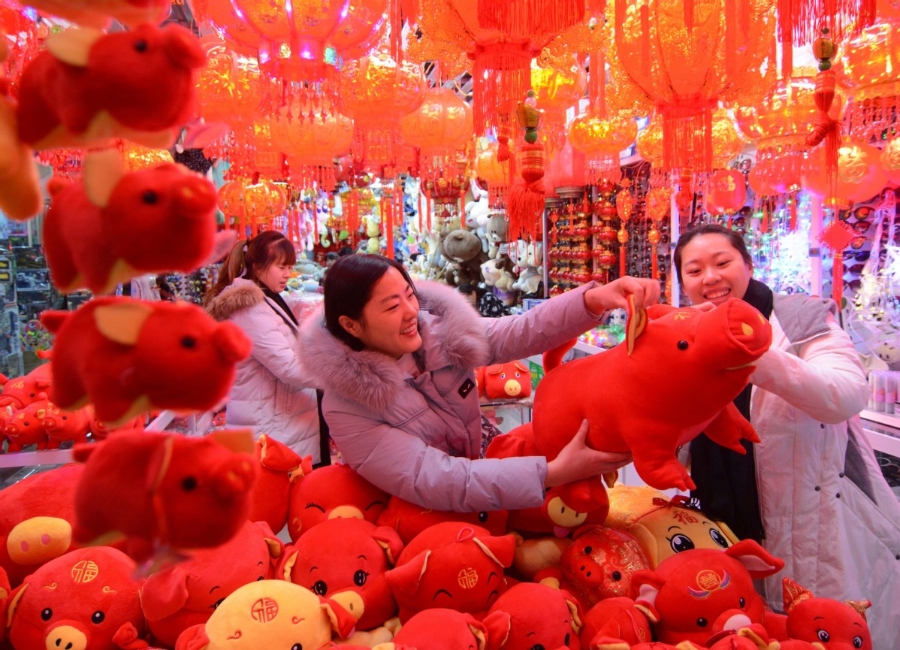Sales spring from festive enthusiasm
For the Spring Festival holiday in early February, Chinese consumers' spending on health, culture and entertainment-related products and services is likely to see a marked increase, market insiders said.
For the Spring Festival holiday in early February, Chinese consumers' spending on health, culture and entertainment-related products and services is likely to see a marked increase, market insiders said.

Consumers select products for the upcoming Spring Festival, which falls on Feb. 5 this year, at a shopping mall in Jinzhou, Liaoning province. [Photo provided to China Daily]
The Chinese Lunar New Year week is a traditional period of shopping that companies exploit to promote brands and sales, they said.
The seven-day holiday is marked by family reunion dinners, visits to homes of relatives and close friends, and entertainment activities. During such occasions, people exchange gifts bought during the shopping spree before the holiday.
Such strong consumption creates a peak period for marketing and sales, especially for food and beverage firms. Sales of milk, liquor, biscuits, fruit, meat, vegetables, sugar, dry fruits, melon seeds, potato chips, and soft drinks tend to peak during the holiday period.
Cinthia Chen, partner at Boston Consulting Group, said consumers are also showing preference for imported foods (such as seafood and fruit like cherries, avocado and kiwi fruit), driven by ongoing consumption upgrade and enlarged supply.
According to a recent report of market research firm Kantar Worldpanel, the top five categories during the Spring Festival shopping are liquor and alcoholic beverages, dairy products, soft drinks, nuts, sugar and chocolate in terms of sales. For liquor and alcoholic beverages, each family spends about 367 yuan ($54.1) on average in the category.
During the holiday, consumers tend to buy a lot of health foods like oatmeal, yogurt, milk and nutritional products, steering clear of snacks like high-calorie items. Sales of sugar-or fat-rich foods like cheese, sausage and cakes may drop. In fact, sales of cakes alone may decrease by more than 10 percent, it said.
Agreed Chen from BCG. "Health foods are popular among consumers of all ages."
Retailers are also wooing consumers born after the 1990s (who may be building both their family and career) with innovative, creative and fun products, backed by fascinating design and marketing, Chen said.
For example, companies are using online mini games, red packets (envelopes containing customary cash gifts), or short videos to provide more entertainment experiences.
During last year's holiday, more than 250 million users of Alipay across the world collected five fu characters online. Fu means blessed fortune in the Chinese language. By collecting five fu, users became eligible for a chance to reap cash rewards totaling 500 million yuan, according to the company.
"In the digital era, the focus of customers has shifted from the product itself to the experience of buying or sharing it," said Kher Tean Chen, managing director and products industries lead for Accenture in China.
According to the Kantar Worldpanel's report, about 630 million consumers availed themselves of special deals on products during the Spring Festival of 2018.
As consumers, the emerging elderly group (that is, those born in the 1950s and 1960s) can also show considerable purchasing power during the Spring Festival shopping wave, including on online destinations, Chen from Accenture said.
"They have enough time and money, and tend to make quick decisions. Companies can attract this group of consumers through online marketing and by encouraging information-sharing among acquaintances."

